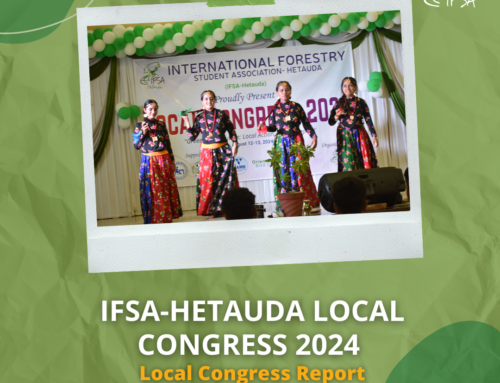CBD April Announcements
Media Release: Worsening Worldwide Land Degradation Now ‘Critical’, Undermining Well-Being of 3.2 Billion People Summary for policymakers of the thematic assessment report on land degradation and restoration of the Intergovernmental Science-Policy Platform on Biodiversity and Ecosystem Services available here. WORLD HEALTH DAY: 7 April 2018 – Secretariat Press Release “Universal health coverage: everyone, everywhere” Human health and nutrition security is intimately interconnected with biodiversity and the health of our ecosystems. Biodiversity plays a crucial role in human nutrition through its role in global food production, as it ensures the sustainable productivity of soils and provides the genetic resources for crops, non-crop terrestrial species, livestock and marine species harvested for food. Access to a sufficiency of a nutritious variety of foods is a fundamental determinant of health, so that populations are not malnourished or obese. Plant biodiversity, for example, is the single largest source of natural medicines. Globally, an estimated 60,000 species are used for their medicinal, nutritional and aromatic properties. Biodiversity is proven to be beneficial for our mental health. Green spaces in urban settings, for example, are linked to stress reduction. There is also strong evidence for the benefits of interaction with nature – including domestic animals and wild animals in wild settings – in treatments for depression, anxiety and behavioural problems, particularly in children and teenagers. As recently noted by the World Health Organization; every breath we take depends on another life, another species. In order to live in harmony with nature, let’s focus on sustainably using, conserving and sharing the benefits of biodiversity in ways that enables it to survive and provide future generations with the sustenance for healthy and productive lives. EARTH DAY: 22 April 2018 – Secretariat Press Release “End plastic pollution” In 1950, the world’s population of 2.5 billion produced 1.5 million tons of plastic; in 2016, a global population of more than 7 billion people produced over 300 million tons of plastic. According to a recent study, of all the non-recycled plastic produced to date, only 9 per cent of that waste has been recycled, only 12 per cent incinerated, with the remaining 79 per cent accumulating in landfills and the natural environment. Up to 80 per cent of all litter in our oceans is made of plastic. We can refuse to use plastic straws, grocery bags, plastic utensils, plates and cups. Instead, we can buy reusable bags and reusable water bottles, and use dishes, glasses and metal silverware. We can also choose cosmetic and personal care products that do not contain microplastics – small beads that are not visible to the eye and not filtered out during sewage treatment. Furthermore, we can participate in organized cleanups and pick up plastic trash wherever we see it, especially in ponds, streams rivers and beaches.CONFERENCES, MEETINGS, WORKSHOPS
Capacity Building Workshop for SBSTTA 22 There will be a capacity-building workshop on the margins of the twenty-second meeting of the Subsidiary Body on Scientific, Technical and Technological Advice (SBSTTA 22), from 30 June to 1 July 2018, in Montreal, Canada. The purpose of the workshop is to strengthen the awareness and capacity of subsidiary body meeting delegates of the Convention to integrate a gender perspective in the intergovernmental deliberations and the implementation of the Convention, the Aichi Biodiversity Targets, and the National Biodiversity Strategies and Action Plans (NBSAPs). This workshop is intended to equip participants with the knowledge and tools needed to:- effectively contribute to discussions on gender equality and women’s participation under SBSTTA22/SBI2 and COP14, and support their delegations and negotiating groups to integrate gender considerations in decisions to be adopted;
- identify key entry points for gender mainstreaming in biodiversity policies and programmes, including in NBSAPS, in implementation of the Aichi Biodiversity Targets, and in national reporting;
- effectively implement the 2015-2020 Gender Plan of Action and reflect on a post-2020 plan or strategy; and
- strategically integrate gender considerations in the development of the post-2020 biodiversity framework and follow-on planning for gender mainstreaming in implementation of the Convention.



